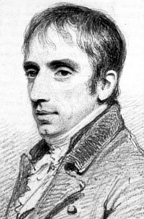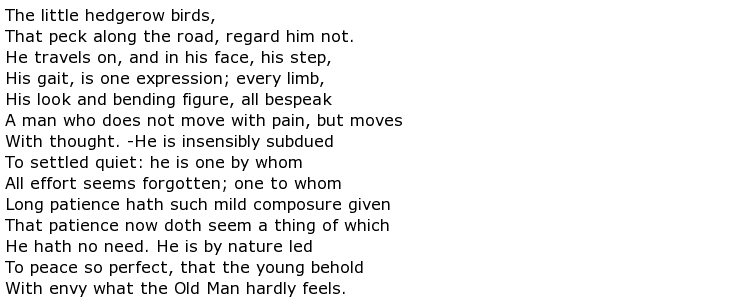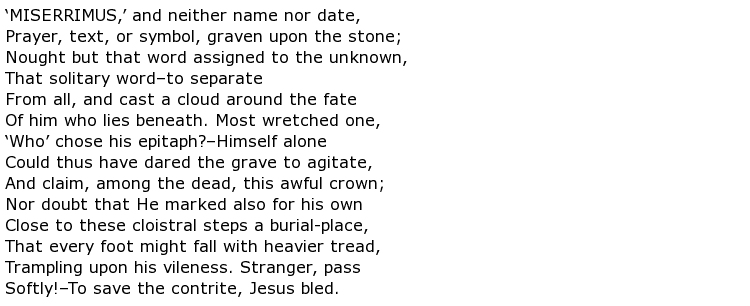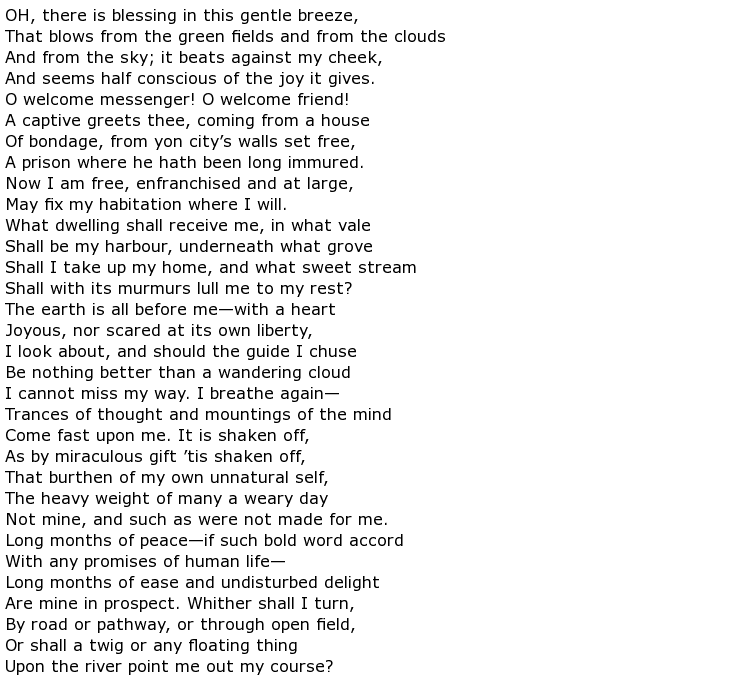 It’s always interesting to see how a person’s early life experiences shapes their future. When we look at the life of William Wordsworth, we can see a very good example of this. He was born in Cockermouth, in the county of Cumbria, England, in 1770. When he was just eight years old, his mother passed away, which had a profound impact on his childhood. He received his early education at Hawkshead Grammar School, which is where he learned about poetry and developed a deep affection for literature. It was at this time that he made his first attempt at writing poetry. However, his life would continue to be molded by life’s events. While he was attending Hawkshead School, his father died also. Wordsworth was left, along with his brothers and sisters, as orphans. He went on to study in Cambridge at St. John’s College. Sometime before his last semester in school, he took off on a walking tour of the mainland of Europe — this had a profound impact on his understanding of politics as well as his poetry. One of the events that he encountered during his tour of Europe was the French Revolution. This experience, along with a time when Wordsworth lived in France, expanded his appreciation for life, along with all of its problems. These issues had an incredible influence on his work. He wrote one of his earliest collections during this time: An Evening Walk. He later married and had several children, which also gave him considerable life experiences with which to write about.
It’s always interesting to see how a person’s early life experiences shapes their future. When we look at the life of William Wordsworth, we can see a very good example of this. He was born in Cockermouth, in the county of Cumbria, England, in 1770. When he was just eight years old, his mother passed away, which had a profound impact on his childhood. He received his early education at Hawkshead Grammar School, which is where he learned about poetry and developed a deep affection for literature. It was at this time that he made his first attempt at writing poetry. However, his life would continue to be molded by life’s events. While he was attending Hawkshead School, his father died also. Wordsworth was left, along with his brothers and sisters, as orphans. He went on to study in Cambridge at St. John’s College. Sometime before his last semester in school, he took off on a walking tour of the mainland of Europe — this had a profound impact on his understanding of politics as well as his poetry. One of the events that he encountered during his tour of Europe was the French Revolution. This experience, along with a time when Wordsworth lived in France, expanded his appreciation for life, along with all of its problems. These issues had an incredible influence on his work. He wrote one of his earliest collections during this time: An Evening Walk. He later married and had several children, which also gave him considerable life experiences with which to write about.
A Sketch
by William Wordsworth

Of equal importance in the early works of Wordsworth was when he met another contemporary poet, Samuel Taylor Coleridge. The two of them worked together to publish the noted work, Lyrical Ballads. These were some of the most significant of his work and they had a huge impact on Western literature; however, it is in the opening of the second edition of these writings that we find a description of Wordsworth’s attitude toward his writings, as well as his perception of his place in the world. There, in the preface of that second edition, Wordsworth writes about the need to use “common speech” when writing poems, and he railed against the standard practice of the period of writing epic poetry versus lyric forms. During his life, Wordsworth continued to emphasize the need for changes in the rules for writing both poetry and prose.
A Gravestone Upon The Floor In The Cloisters Of Worcester Cathedral
by William Wordsworth

Many consider The Prelude to be his most famous work, and it is also thought to be one of the greatest achievements in Romantic English literature. The poem itself is the story of Wordsworth spiritual life and, although it was revised many times, it came to represent a new genre of English poetry. Actually, The Prelude was not published until several months after his death. He had stopped writing after the loss of one of his children, and never seemed to regain interest in his work.
The Prelude (an excerpt)
by William Wordsworth


